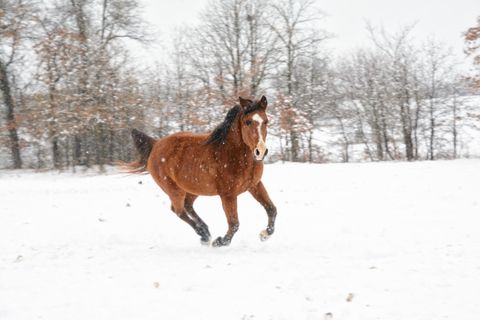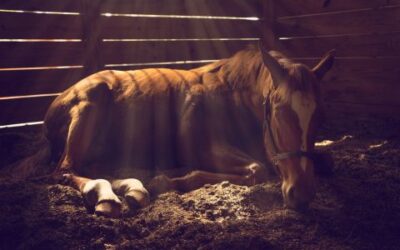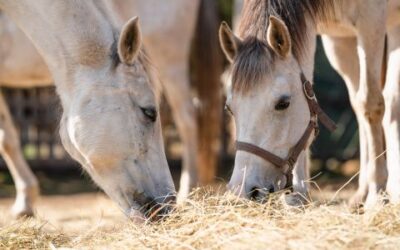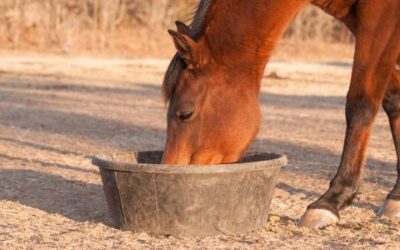
It is natural to wonder how you can keep your senior horse comfortable with a forecast of snow, sleet, wind, and sub-zero temperatures. As our friends age and enter their golden years, there are additional health considerations that must be made. Generally, a senior horse is considered a horse over 15 years of age, since this tends to be the point at which changes in their metabolism and immune system can be noticed.
We have compiled some quick tips for caring for older horses in the winter. These should help you keep your senior horse content and cozy in the frigid weather. Hopefully knowing that your horse is at ease will make it easier for you to enjoy another winter season in New England.
Drink Up!
Water is an essential part of keeping your senior horse healthy, whatever the weather may be. Winter is certainly no exception, but it may be harder to keep your horse drinking consistently. Horses who do not have adequate water intake are at an increased risk for impaction colic, dehydration, and decreased body condition and bodily functions. By utilizing a heated bucket or deicer, you can avoid ice and keep your horse’s water flowing freely. Be sure that you inspect the heater daily to verify that it is functioning properly and safely.
Meal Planning
Your horse’s nutritional requirements will change as the mercury drops. Many older horses already have a decrease in their digestive efficiency, so they require more calories than their younger counterparts. According to Marsha Hathaway, Ph.D., Professor of Muscle Growth Biology and Equine Nutrition at the University of Minnesota, horses require an additional 1% of energy for each degree below 18° Fahrenheit. In order to provide these calories, she explains that it is beneficial to provide more hay since, “there is the heat generated from microbial fermentation of forages that occurs in the hindgut during digestion.”
When the temperatures drop to an extreme level, it is suggested that you provide your horse with free choice hay so that they are able to eat as much as they want. What’s the best feed for senior horses? If your senior horse has trouble chewing their long stem hay, consider a chopped hay product, like chopped timothy hay, to supplement or even replace their forage requirements.
A big part of caring for older horses in winter is keeping an eye on their weight. If your horse drops weight during the colder months, even with increased forage and grain consumption, consider adding a weight gain supplement to your horse’s rations to help them build their fat stores.




